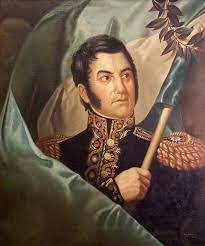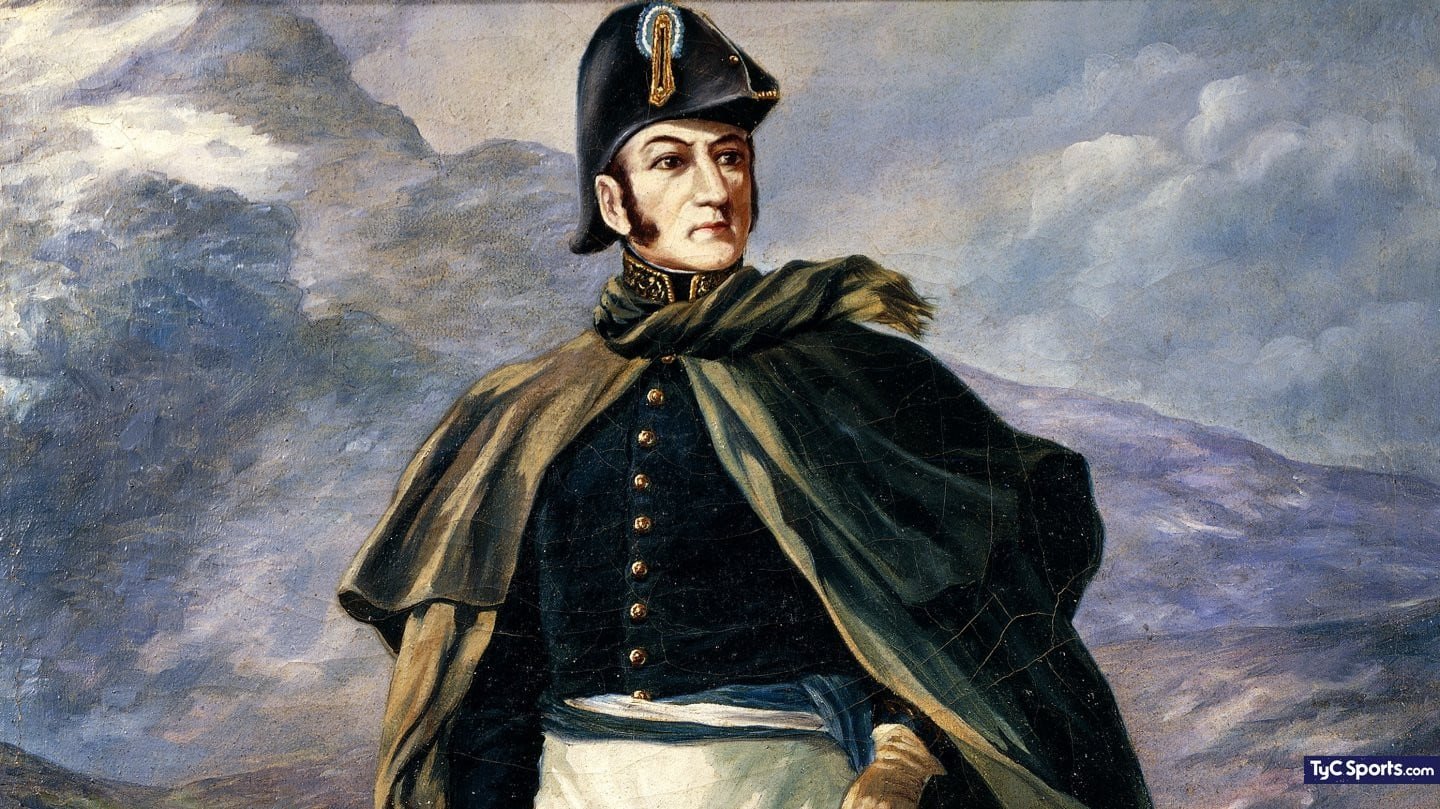Our Fraternal Pillars
Phi Iota Alpha does not have traditional founders as its establishment, rather it is the result of three Latino organizations coming together for one purpose on December 26th, 1931. Furthermore, we look up to the following individuals for their pivotal roles each played in freeing Latin America.
DON SIMÓN BOLÍVAR (1783-1830)
Known as El Libertador (the Liberator), he liberated six nations: Venezuela, Colombia, Panama, Ecuador, Peru, and Bolivia owe their independence from Spain to Simón Bolívar.
Born on July 24, 1783, in Venezuela, the writer and revolutionary general gave up his social status for a more noble cause, the independence of Latin America from foreign rule. For 20 years, Bolívar led the fight to free northern South America. His small, poorly equipped forces won amazing victories and met overwhelming defeats.
At the height of his power, he was president of La Gran Colombia (present-day Venezuela, Colombia, Panama, and Ecuador), Peru, and the newly formed Bolivia (a country named after him). Bolívar was a sincere patriot, devoted to the cause of liberty and equality, and a promoter for the unification of all the Latin American countries under one unified republic‹the idea of Pan-Americanism.
Simon Bolivar died in Santa Marta, Colombia on December 17, 1830, after suffering from tuberculosis.
“En la unidad de nuestras naciones descansa el futuro glorioso de nuestros pueblos”
- DON SIMÓN BOLÍVAR
DON JOSÉ DE SAN MARTÍN (1778-1850)
One of the greatest heroes of South American independence was Jose de San Martin. He helped liberate Argentina, Chile, and Peru from Spanish rule. Born on Feb. 25, 1778, in Yapeyu, his early military career involved fighting the Moors and Napoleon's forces where he rose to the rank of lieutenant colonel.
In 1812 he resigned and returned to Argentina to join the revolt there. In 1814, he had himself made governor of a district in the foothills of the Andes. After training an army, he led it across the Andes Mountains into Chile where his men routed the Spanish at Chacabuco in 1817 and entered Santiago unopposed. The next year, San Martin's decisive victory at Maipo set all of Chile free.
In 1820 his army landed on the southern coast of Peru and entered Lima in 1821. San Martin met with Bolivar in Guayaquil, Ecuador, in July 1822 and turned over the command to him. On returning to Argentina, San Martin learned that his wife had died. He left for Europe with his daughter and spent the rest of his life in exile.
Jose de San Martin lived in Europe until his death in Boulogne-sur-Mer, France, on Aug. 17th, 1850 at three o'clock.
“Solo quiero leones en mi regimiento”
- DON JOSÉ DE SAN MARTÍN
The leader of Chile's first independent government and a brilliant soldier, Bernardo O'Higgins led the Chilean patriots in their battle for independence. A reformer, he was the first national leader in the Americas to abolish black slavery.
DON BERNARDO O’HIGGINS (1778-1842)
O'Higgins was born on Aug. 20, 1778, in Chillan, Chile. His father was Spain's governor for Chile and viceroy for Peru. In 1802, O'Higgins returned to Chile to manage property left to him by his father. He joined the militia and rose to the rank of Colonel. When Chile rebelled against Spain in 1810, he helped drive the Spaniards out of Chile and later became commander of the revolutionary army. After securing Chilean independence, its provisional government asked O'Higgins to rule the country as supreme director. During his rule, which lasted for six years, he instituted a number of reforms and also helped San Martin build forces to fight Spain in Peru.
Bernardo O'Higgins died in Lima, Peru on Oct. 24, 1842, after suffering from cardiac problems.
“En tiempos de revolución, es peligroso llevar a cabo cambios fundamentales de repente, por muy razonables y deseables que sean en sí mismos. Esto es arriesgarse a perderlo todo.”
- DON BERNARDO O'HIGGINS
Mexico's national hero and its first president of Indigenous descent was Benito Juarez. During his years in Government, he succeeded in undermining the power of both the Roman Catholic Church and wealthy landlords in order to make Mexico a constitutional democracy.
DON BENITO JUAREZ (1806-1872)
Juarez was born at San Pablo Guelatao in the state of Oaxaca on March 21, 1806. He studied law at the Oaxaca Institute of Arts and Sciences and within a few years he had served in both state and national legislatures. From his government service, he gained many ideas for political and economic reform.
When liberals defeated conservatives in the elections of 1855, Juarez became minister of justice and public instruction. The new administration abolished special courts for the church and the military, forced the church to sell its enormous property holdings, and created a new, liberal constitution. In 1857 Juarez was chosen to preside over the Supreme Court and, in effect, to serve as vice president. During a conservative revolt from 1858 to 1860, he acted as president.
Benito Juarez died at the age of 66 on July 18th, 1872, while reading his newspaper at his desk in the National Palace.
“Los hombres no son nada, los principios lo son todo.”
- DON BENITO JUAREZ
Cuba's foremost patriot in the struggle for independence was from the poet and essayist, Jose Julian Marti. His lifelong dedication to Cuban freedom was spelled out in essays and poems that circulated throughout the Latin American countries.
DON JOSE MARTI (1853-1895)
Jose Julian Marti y Perez was born on Jan. 28, 1853, in Havana. As a teenager he became involved with a revolutionary group and was sentenced to six months of hard labor for speaking out against the government. At 18, he was exiled to Spain, where he finished his schooling at the University of Saragosa in 1874.
A continuous stream of articles published in South American newspapers brought him fame throughout Latin America. In 1892 he became head of the Cuban Revolutionary party and began planning an invasion of the island. He and other revolutionaries arrived in Cuba on April 11, 1895. Jose Marti will be forever remembered because he waged war neither with swords nor guns, but with simple words expressing the truth.
Jose Marti died on May 19th, 1895 from a gunshot wound at the battle at Dos Rios.
“Los hombres son como los astros, que unos dan luz de sí y otros brillan con la que reciben.”
- DON JOSE MARTI










